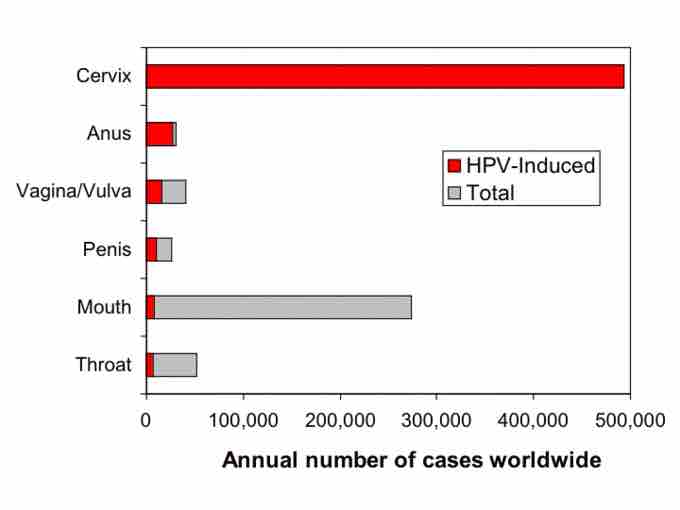There are two classes of cancer viruses: DNA and RNA viruses. Several viruses have been linked to certain types of cancer in humans. These viruses have varying ways of reproduction and represent several different virus families.
DNA Oncogenic Viruses include the following:
- The Epstein-Barr virus has been linked to Burkitt's lymphoma. This virus infects B cells of the immune system and epithelial cells.
- The hepatitis B virus has been linked to liver cancer in people with chronic infections.
- Human papilloma viruses have been linked to cervical cancer. They also cause warts and benign papillomas .
- Human herpes virus-8 has been linked to the development of Kaposi sarcoma. Kaposi sarcoma causes patches of abnormal tissue to develop in various area of the body including under the skin, in the lining of the mouth, nose, and throat or in other organs.
DNA tumor viruses have two life-styles. In permissive cells, all parts of the viral genome are expressed. This leads to viral replication, cell lysis and cell death. In cells that are non-permissive for replication, viral DNA is usually, but not always, integrated into the cell chromosomes at random sites. Only part of the viral genome is expressed. These are the early control functions of the virus. Viral structural proteins are not made, and no progeny virus is released.
The first DNA tumor viruses to be discovered were rabbit fibroma virus and Shope papilloma virus, both discovered by Richard Shope in the 1930s. Papillomas are benign growths, such as warts, of epithelial cells. They were discovered by making a filtered extract of a tumor from a wild rabbit and injecting the filtrate into another rabbit in which a benign papilloma grew. However, when the filtrate was injected into a domestic rabbit, the result was a carcinoma, a malignant growth. A seminal observation was that it was no longer possible to isolate infectious virus from the malignant growth because the virus had become integrated into the chromosomes of the malignant cells.

Virus Causing Cervical Cancer
Human papilloma virus is strongly linked to the development of cervical cancer among other types of cancers.